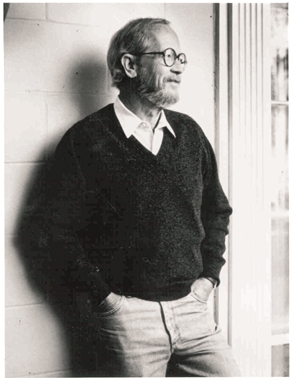Coping with a child’s autism diagnosis

Jonathan and Polly Tommey’s eldest son, Billy, was diagnosed with severe autism at the age of two. Today, Billy is a high-functioning teenager – thanks to his parents’ determination to discover as much as possible about autism, its causes and potential treatments. Polly shares how she dealt with difficult emotions that came with her son’s diagnosis.
If your child (or godchild, or niece, or your friend’s kid) has been diagnosed with ASD, you might have experienced a terrible feeling of isolation and despair – just like Jonathan and Polly did. That feeling and the desire to help others is what drove the Tommeys to shared share their experiences in a book, and give other parents the confidence and knowledge to tackle the problems they face, and find solutions, treatments and educational opportunities that will work for their child.
If you are in need of support, advice and encouragement read how Polly has dealt with the emotions that came along her son’s formal diagnosis.
LOSS
Most parents talk about the loss of “the child they thought they were having”, what they thought their lives and that of their child would have been; others talk about the loss of the child they said they had before . . . However you feel about it, it is important to accept that everyone has their own way, and no one’s way is wrong, and if you discuss it with no one else, do discuss it with your partner, and be prepared to accept that he or she may be experiencing a different set of emotions and may need to cope in an entirely different way from you.
- As someone who has experienced this, I can say that you will get through.
- OK, this is not what you had mapped out for your child, but it’s a different journey and there are many people out there who can help you.
- Allow yourself to go through this emotion. It’s all right and it will make you stronger.
- If you can, talk to your partner. You are going through this together.
FEAR
Another feeling you may have is fear. Fear that your child is going to wreck the family; fear that you are not going to be able to help him or her; fear that you won’t cope or won’t have the strength. Fear of the unknown.
- Don’t be frightened – you are not on your own.
- Fear is usually based on ‘the unknown’ or feelings of powerlessness to stop something bad from happening. Read as much as you can on autism to turn ‘the unknown’ into ‘the known’ and to give yourself the power to affect change.
- Remember, you are this child’s parents; you will have the strength to do this. It will have its tough times, but also there will be extraordinary times that will make your life more blessed than most.
GUILT
Guilt is another emotion that most parents feel. For Jon and me, our guilt was because we felt that we could have prevented Billy’s autism. Billy was so ‘normal’, so ‘typical’ in his first year, and then everything changed.
- Use this emotion to do something positive for your child – anything that keeps you busy and has a satisfying end.
- Talking to people is very valuable. It may help you to see things differently, and just airing it can help you feel better about yourself. Talk to anyone who makes you feel better. If they understand, great, if not, move on.
- Remember, if people haven’t lived through this, they simply won’t understand how you are feeling. Don’t get cross with them, do something different with them.
- If you find yourself feeling guilty that you’re not doing enough to help your child, then you only really have two options: either remind yourself that you’re doing all you can under the circumstances, or do more.
EMBARASSMENT
Embarrassment is a tricky one to define and, at the time, there’s absolutely nothing you can do about it. It’s an automatic response caused by your perception of the ‘transgression of social norms’ and is actually a feature of a strong sense of social empathy: sharing the thoughts and feelings of others. People who don’t understand or care about the perceptions of others don’t tend to get embarrassed.
- If you feel embarrassed by people’s responses to your child’s behaviour when out in public, sometimes just saying ‘he has autism’ is enough to prompt people’s ignorance into understanding. Otherwise, just remind yourself that it’s their ignorance at fault, not you or your child.
- Things that happen that seem like the end of the world at the time never are, and you really will laugh one day.
- Never build yourself up for a disappointment. When Billy first waved goodbye, I raced around to a friend’s house to show her Billy’s new skill. She just looked at me sadly when he wouldn’t/couldn’t do it. Moral of the story: don’t expect too much from your child too quickly.
- Your child’s skills and overall development can never be taken for granted in a new situation, so be prepared. Don’t expect your child to learn too quickly or be able to do something in one place just because he has learned to in another.
RESENTMENT
Resentment is a big one; a deep emotion that so many people don’t admit to. We can’t, because if we do then in the eyes of the world we become a really awful and bitter human being. But when you are extremely low, it can happen to anyone … I wasted too long crying, blaming and shouting. It’s a waste of time and valuable energy that should be spent on our children – A few suggestions:
- Try not to dwell on the ‘Why me?’ The bottom line is that it is us, we are strong and we are going to deal with this.
- It may seem harsh, but having a child with autism will help to clarify who your real friends are. If you can, let them know how you feel, and don’t see friends who bring you down.
- They’ll either get the idea, or they weren’t true friends to begin with.
- So much is known about autism now. There is an answer for almost every problem you have. Bury your head in looking for those answers rather than dwelling on the past and what might have been.
LONELINESS
Loneliness is a painfully common emotion for families dealing with autism. It can seem as if the diagnosis has instantly isolated you from the rest of the world and that you have to cope alone with a new and frightening reality while everyone else carries on around you with the old familiar one that you no longer have access to . . . You’ll meet the best friends ever in the autism world. Today there is no need to be lonely, as there are so many of us. Autism mothers and fathers are everywhere.
- If you feel isolated because you feel the people around you – your friends, family or even your partner – don’t understand what you’re going through, or don’t realise that you need help and support, tell them. It’s fine to need help and support. We all need it.
- Find the right playgroup/support group. Very few areas these days don’t have one. Your doctor, health visitor, social worker or school should be able to help. Try typing ‘autism support group’ and your town into a search engine.
- Even if you aren’t ‘a joiner’ you’ll find help and support, and a ready-made community in online groups and forums.
- Look for like-minded families living with autism, they will help and be valuable friends. As soon as you get involved in a support group, or start a home programme, or take up a school or nursery place, you will find people who share your experience.
- Remember, if the stats are 1 in 100, there will be a family going through exactly what you are very close to you.
Sunday, 2nd April is World Autism Awareness Day 2017.








